Learn more about how we are building support for action on lead poisoning in Bangladesh in this report from Bushra Humaira Sadaf, Senior Communications Manager, Pure Earth Bangladesh.
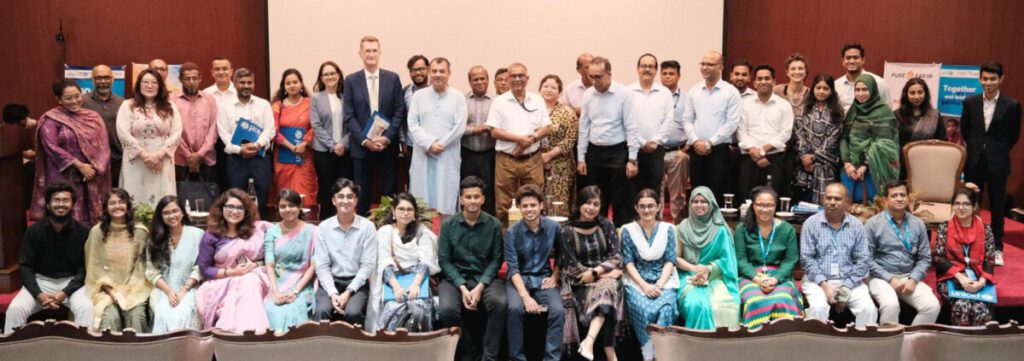
Bangladesh has come a long way in the past five decades in terms of progress and development. From being a predominantly agricultural rural economy, Bangladesh is now one of the top ready-made garment exporters in the world. With a GDP surpassing its neighbors, Bangladesh is a case of a “development miracle,” an example of unprecedented economic development and an inspiring model of poverty eradication in recent years.
Yet, Bangladesh faces a series of environmental problems, including lead pollution, air pollution, marine pollution, water contamination, and loss of biodiversity because of industrialization. The implications of this is huge, resulting in economic loss and lives impacted. According to a World Bank report from 2019, the total number of deaths from pollution was over 272,000, which is 32% of deaths from all causes in Bangladesh. This issue needs to be addressed urgently.
On World Environment Day 2023, Pure Earth Bangladesh, together with the World Bank, UNICEF, the Department of Environment, and Bondhu Foundation, organized a seminar titled “Integrated Pollution Management for a Clean and Healthy Bangladesh and Green Growth,” on June 6, 2023 at the Conference Hall, Department of Environment, to explore innovative solutions for addressing pollution, including lead contamination, with a focus on promoting green growth for Bangladesh. In the seminar, we revisited the issues and the solutions we have at hand. We also reflected on lessons learned and together identified the key actions we can take.
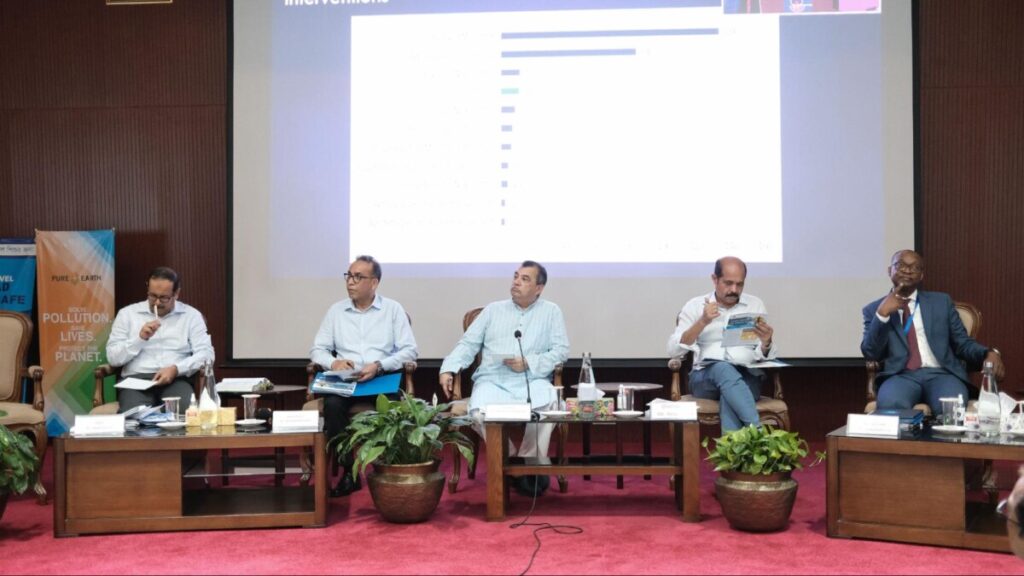
It was a day-long seminar of discussion, analysis, and insight sharing. During the seminar, plenary sessions were held on topics ranging from lead pollution to marine pollution. The seminar also featured a play about the environment and hosted a diverse set of representatives from government agencies, national and international civil society organizations, research and academic institutions, development agencies, and media.
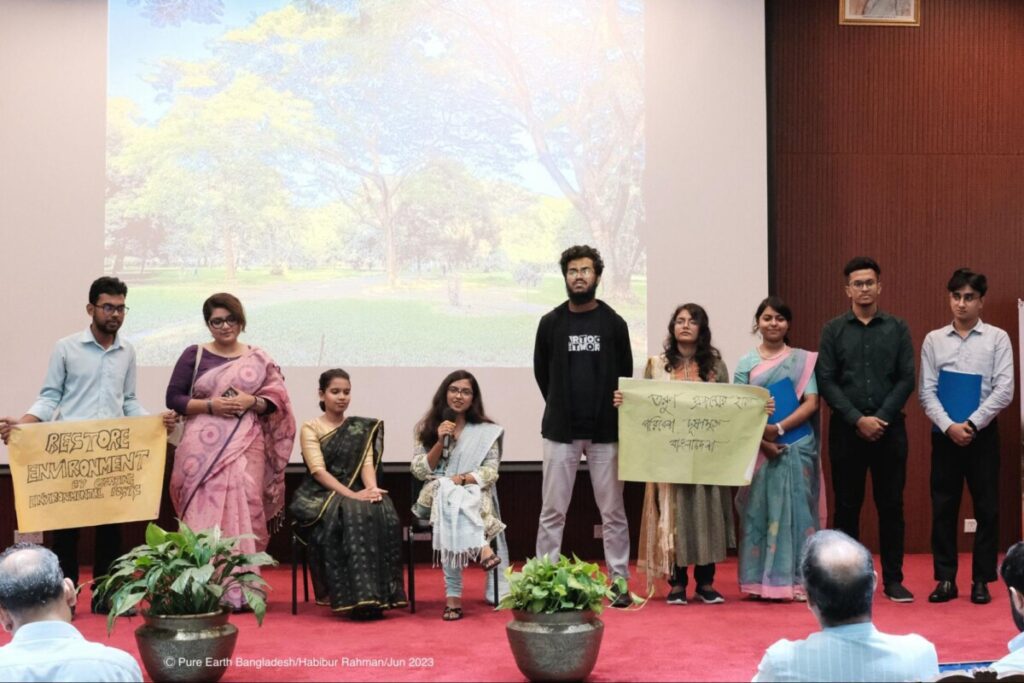
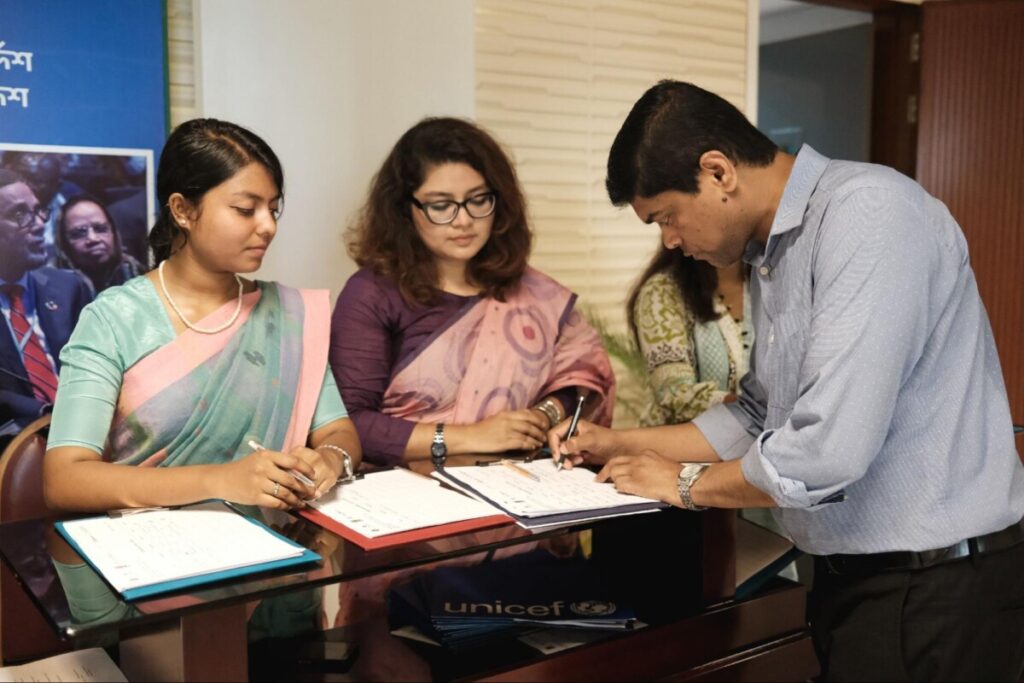
Lead Pollution: A Public Health Dilemma
Lead poisoning has particularly detrimental consequences for children, thus creating irreversible damage to their cognitive capacity and trapping them in a cycle of poverty. Bangladesh is the most severely lead impacted country in the world, iterated World Bank’s Country Director for Bangladesh and Bhutan, Abdoulaye Seck, as he commenced the seminar at the premises of the Department of Environment in Dhaka, Bangladesh.
Lead pollution is particularly a public health issue according to recent research findings. Bjorn Larsen, an environmental economist from the World Bank, presented on environmental pollution, focusing particularly on lead. It has been found that lead increases the risk of ischemic heart disease and stroke in adults. Possibly 62,000 cardiovascular deaths are caused by lead, with a 2.8% cost to the GDP. So lead pollution is negatively impacting the cognitive development of children, and contributing to cardiovascular disease in the adult population.
Toxic metals, including lead, can be released into food during cooking from cookware made from recycled aluminum, as evidenced by multiple studies. Information on lead in food from cookware in Bangladesh is minimal so far. There is a great need to conduct more extensive studies to confirm lead in food from recycled aluminum cookware in Bangladesh.
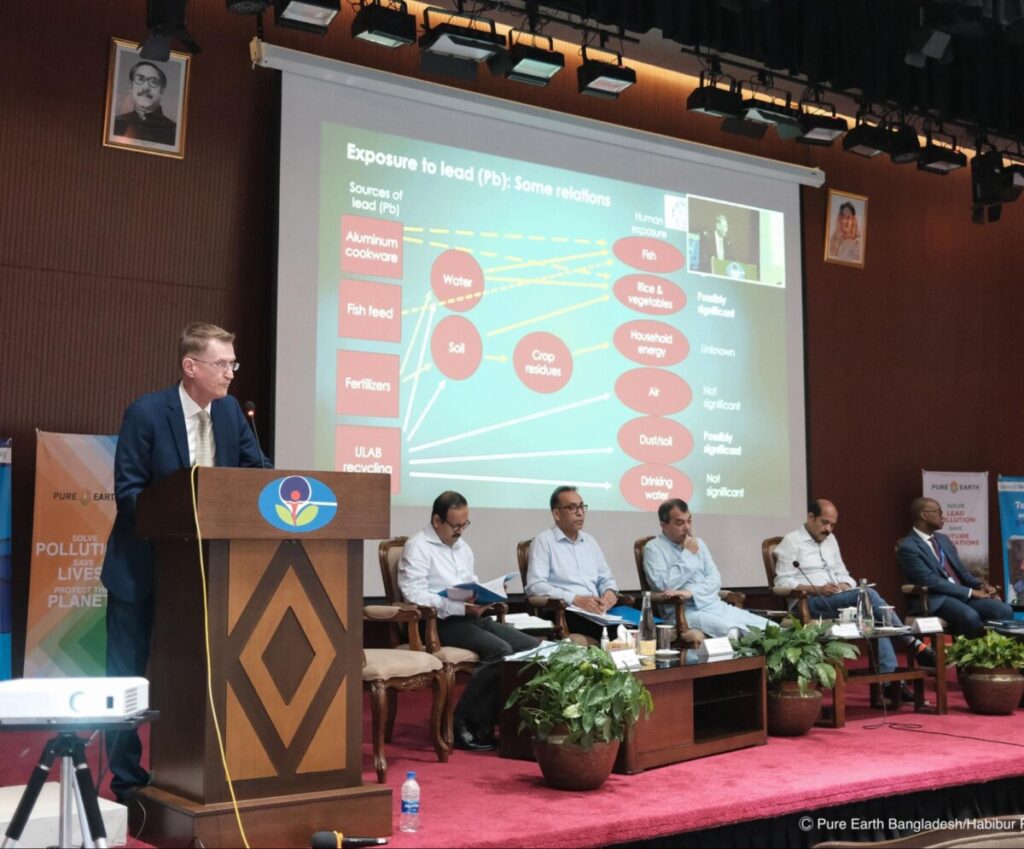
Lead continues to impose substantial health impacts on children and adults, and Bangladesh requires a comprehensive assessment of lead sources and their relative contribution to population exposure. The World Bank also discussed mitigation measures like iron supplementation, site remediation, and lead-contaminated cookware replacement.
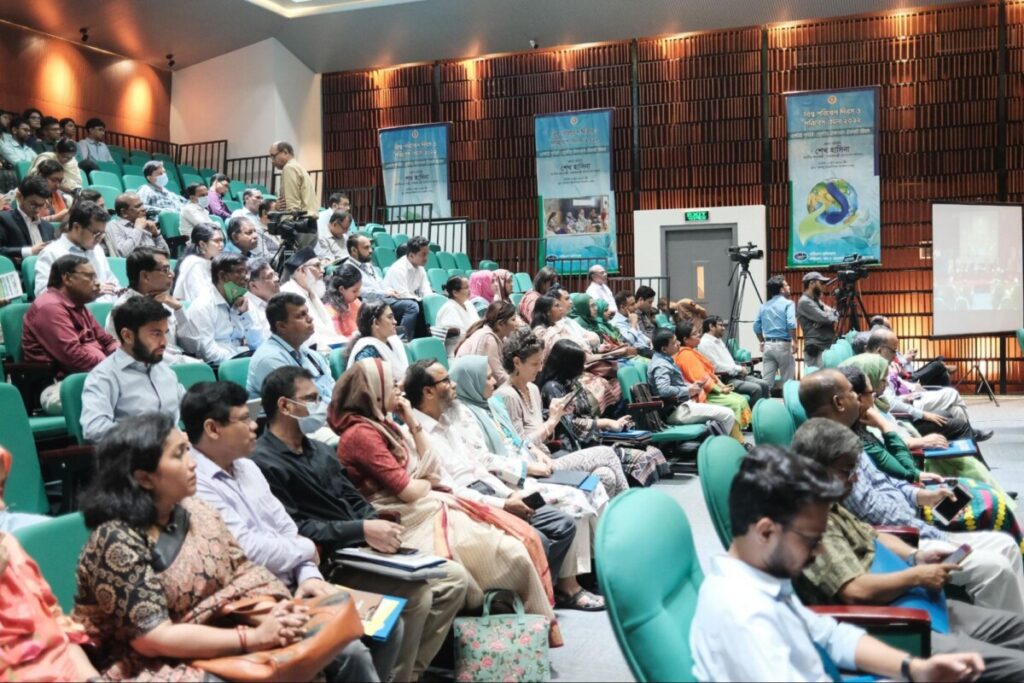
100% of Children In One Study Had Lead In Their Blood
As there is not enough research on lead pollution, it is urgent that we scale up assessment and research on lead. Dr. Anwar Sadat, Deputy Program Manager, Planning, Monitoring and Research (PMR), Directorate General of Health Services (DGHS), presented on a blood lead level (BLL) study and health sector assessment conducted in 2022. According to his research, lead was found in the blood of ALL (100%) of children in every age group (more in males), and around 65% of the study’s children had blood lead levels above 3.5 µg/dL. He strongly advised developing a national multi-sectoral strategy and action plan to address lead poisoning in Bangladesh and scaling up national and subnational awareness campaigns to address lead exposure through various media channels. He emphasized that blood lead level surveillance, including other heavy metals, should be gradually expanded to cover the whole country.
Action Plan to Address Lead Poisoning
Faisal Mahmood, Program Officer from Pure Earth Bangladesh, presented different projects and accomplishments of Pure Earth. He explained the lead source identification projects of Pure Earth. Pure Earth has identified 300+ toxic sites, of which the majority are informally used lead-acid battery factories. Pure Earth has completed three lead clean-up projects in such toxic sites in Savar, Tangail, and Khulna. The remediation helped to decline lead (Pb) concentration by 96%, and reduced children’s blood lead levels (BLLs) by 35% in Kathagora, Savar.
A video titled “Solving Lead Pollution: Identifying Sources of Lead Exposure” was also screened during the presentation. It showcased the process of home-based assessments (HBA) in the study area of Pure Earth to find out sources of lead in daily commodities. It featured a story of a child with high blood lead levels, a participant in Pure Earth’s home-based assessment. So far, Pure Earth Bangladesh has conducted home-based assessments in 272 households in four districts- Tangail, Khulna, Munshiganj, and Mymensingh to identify sources of lead. Prior to HBA, rapid market screening was conducted in four major districts to identify lead levels in consumer products.
Pure Earth is conducting Rapid Market Screening research to identify the lead sources in markets, with investigators screening 367 samples of consumer products from around 4 districts. Investigators are also conducing home-based assessment, visiting 77 houses, and taking samples of soil, water, and spices for analysis. Pure Earth found lead in 96 products (paint, toys, aluminum cookware, etc.) out of 367.
He also suggested developing a time-bound holistic national action plan, which considers existing legislation, and includes provisions for monitoring reporting and enforcement. Pure Earth recommended establishing blood lead monitoring processes nationally, through the government’s existing routine health information system, and enforcing existing laws and regulations to prevent lead chromate use in consumer products.
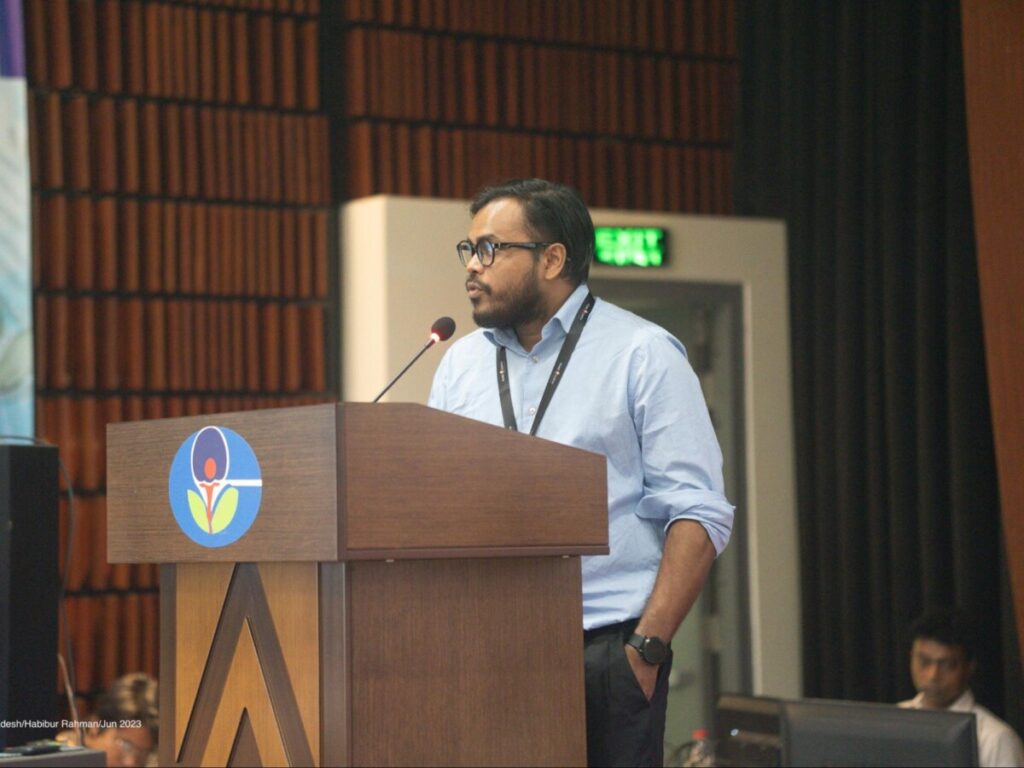
Collaborations With Legislators, Grassroots Changemakers
Collaboration is key to strengthening the efficiencies and effectiveness of all the stakeholders as we address the impact of lead pollution. Dr. Mahfuzar Rahman, Country Director of Pure Earth Bangladesh, noted how effective collaboration and expertise from partners, government bodies, and other NGOs to remediate different areas of Bangladesh has resulted in tremendous success. He also drew attention to the impact of engaging communities and youths as it links the community to civil society. By combining efforts and resources, we can amplify the message about lead pollution and reach a larger number of people.
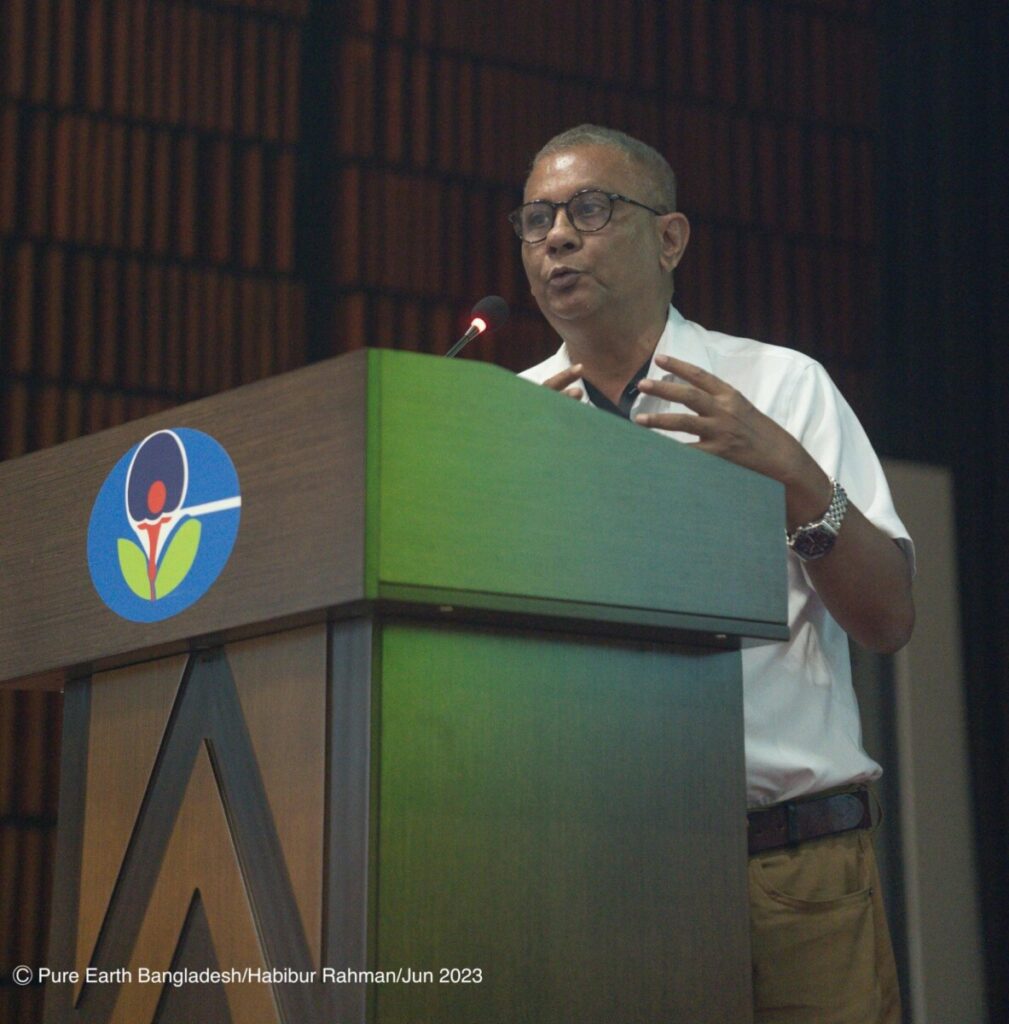
Awareness is Critical to Fighting Lead Pollution
The more people are aware of the dangers of lead pollution, the greater the chances of promoting positive changes in behavior and practices. With mass awareness, we can make a significant difference in fighting lead pollution and protecting our health and environment. Sheldon Yett, the representative of UNICEF, recommended multi-sectoral participation for the detection and prevention of lead poisoning, and urged stakeholders to act collaboratively to raise awareness and enforce uniform existing legislation to reduce lead poisoning. UNICEF handed a policy brief on lead pollution poisoning in Bangladesh to special guests and called for urgent commitment and multi-sectoral action to address lead poisoning.
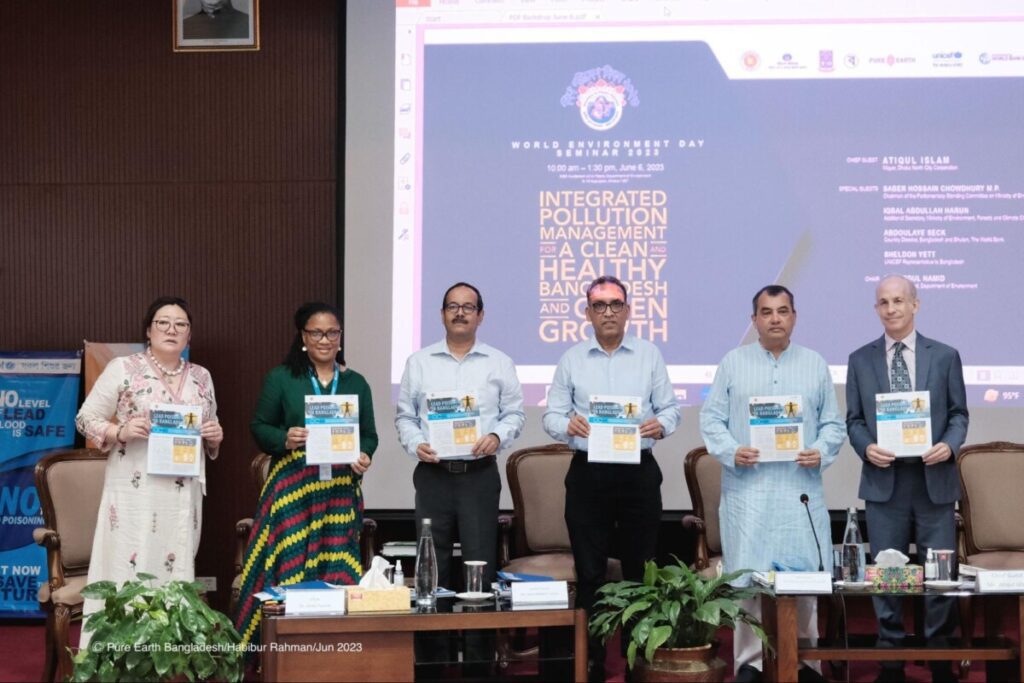
Investment In Public Health
Public health and pollution are closely interconnected. Pollution has a significant impact on public health, leading to various health problems and contributing to the burden of disease. Investing in public health improves societal health, advances equity, fosters economic and climate resiliency, and helps the population thrive and reduce human suffering with reduced healthcare disparities, and enhanced emergency preparedness. These investments are vital for creating healthier communities and promoting overall well-being. Speakers at the event also emphasized prioritizing public health.
“Public Health is one of the main priorities of Bangladesh. We are making a huge investment in health, education, and vaccination for the children in our budget, but on the other side, we are exposing them to lead poisoning” – Saber Hossain Chowdhury, Member of Parliament, Chairman of the Standing Committee of the Ministry of Environment, Forest and Climate Change (MoEFCC).
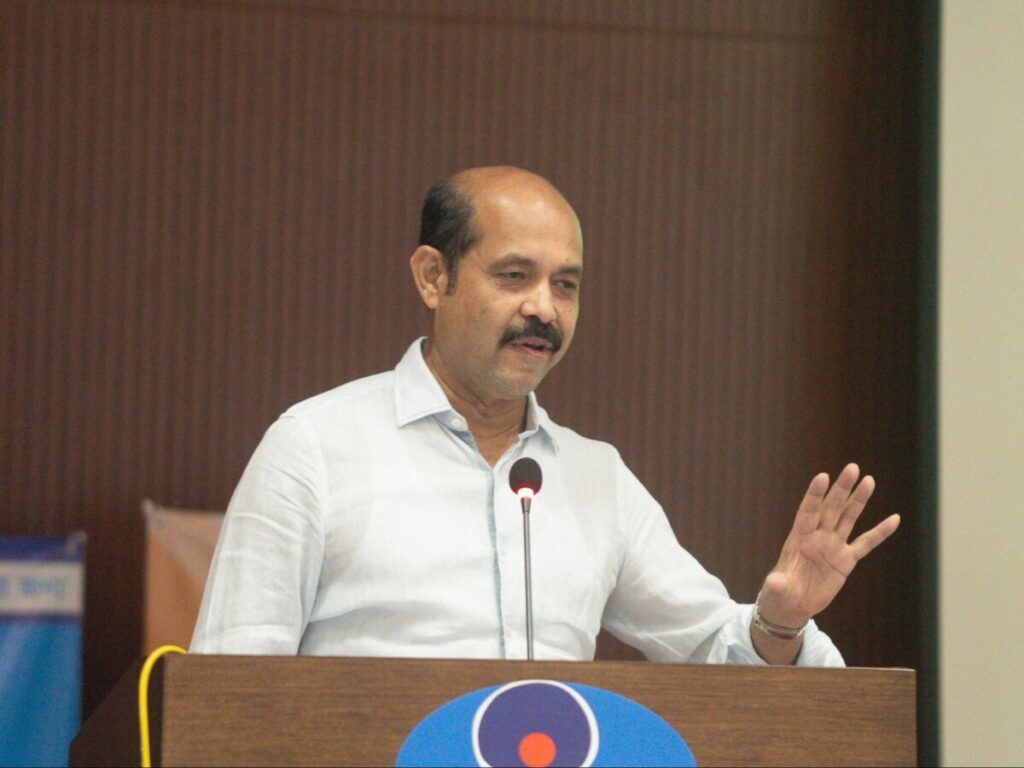
Heavy Metal Pollution
Dr. K M Azam Chowdhury, Chairman of Dept. of Oceanography, and Dr. Tonia Astrid Capuano, Visiting Scientist (ICOG), DU the International Center for Ocean Governance (ICOG) and Marine Science Department of Dhaka University, presented on ocean pollution and remediation. They discussed heavy metal pollution in the ocean. Heavy metals mainly originate from domestic and industrial discharges, gas production plants, agriculture, and shrimp farming. Concentrations of various heavy metals, notably lead, iron, cobalt, cadmium, and copper in water, sediment, and fish are above their international permissible limits, almost 500 times higher which is quite alarming.
Q&A
The event also held an active Q&A session with an open discussion round with the participants, moderated by Eun Joo Allison Yi, Senior Environmental Specialist from World Bank. Students, young professionals, and leaders asked about different environmental issues in the plenary. Mr. Iqbal Abdullah Harun, Additional Secretary of the Ministry of Environment, Forest and Climate Change, who was a special guest, said in his speech that to build a healthy and clean Bangladesh, everyone should come forward to review the integrated pollution system and accelerate greening. He urged everyone to coordinate with the government and private sector to control environmental pollution.
The President of the Seminar, the Director General of the Department of Environment, Dr. Abdul Hamid, announced a proposed ban on the import of lead batteries in Bangladesh through the Ministry of Commerce. He also requested everyone to work on practical solutions and integrated management of solid waste and pollution with the theme of World Environment Day 2023, “Solution to Plastic Pollution.” He discussed innovative approaches to fight pollution and manage waste while enhancing integrated pollution management to increase greening in Bangladesh.
Way Forward to a Lead-Free Environment
Bangladesh is one of the most severely lead-impacted countries globally, it is high time we approach the pollution issue with strategy and long-term impact. This seminar brought about the key issues and solutions we can act on right now to solve them.
- Multi-sectoral collaboration and inter-ministerial coordination to curb lead pollution.
- Further extensive research on the state of lead poisoning in Bangladesh as well as the identification of lead sources.
- Prioritization of public health through effective implementation of law and order.
- Identification of regulatory frameworks and other institutional capacity constraints with utmost importance for sustainable pollution management.
- Implementation of low-cost interventions to reap maximum benefits.
- Proper implementation of existing legislation in all sectors.
- Active participation of the public through awareness building.
- Capacity building of different relevant government ministries.
- Continuous advocacy and engagement with the private sector for safe manufacturing practices and disposal of Lead in products.
- Ensure implementation of effective waste management across all sectors, especially industrial waste, because contaminated waste ends up in different pathways.
To learn more about this seminar on World Environment Day 2023: Read the proceedings





